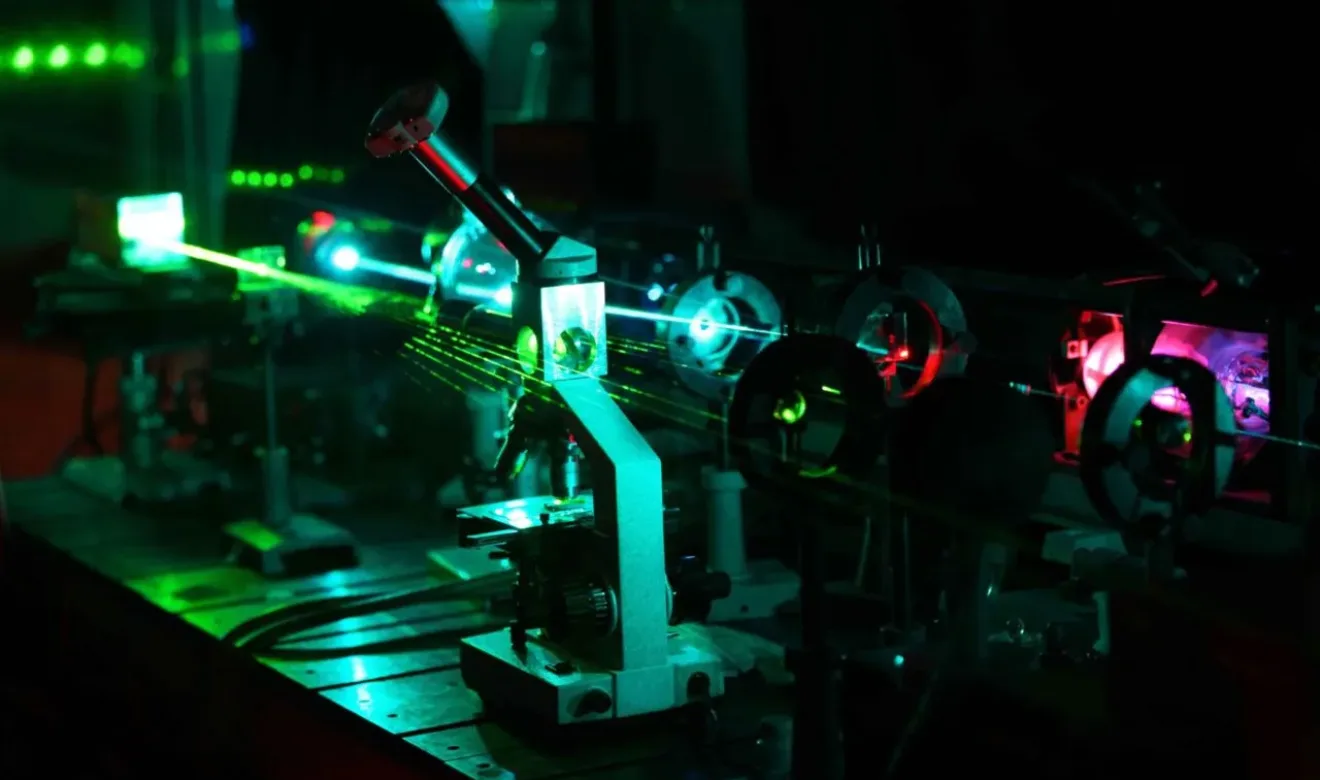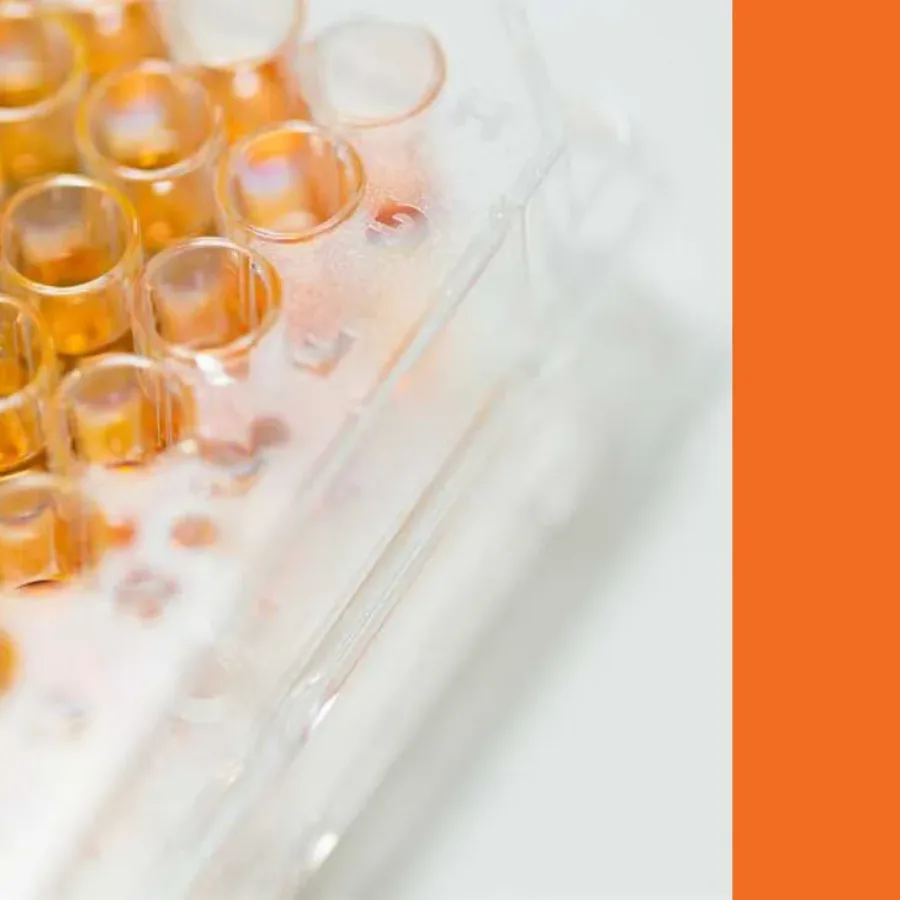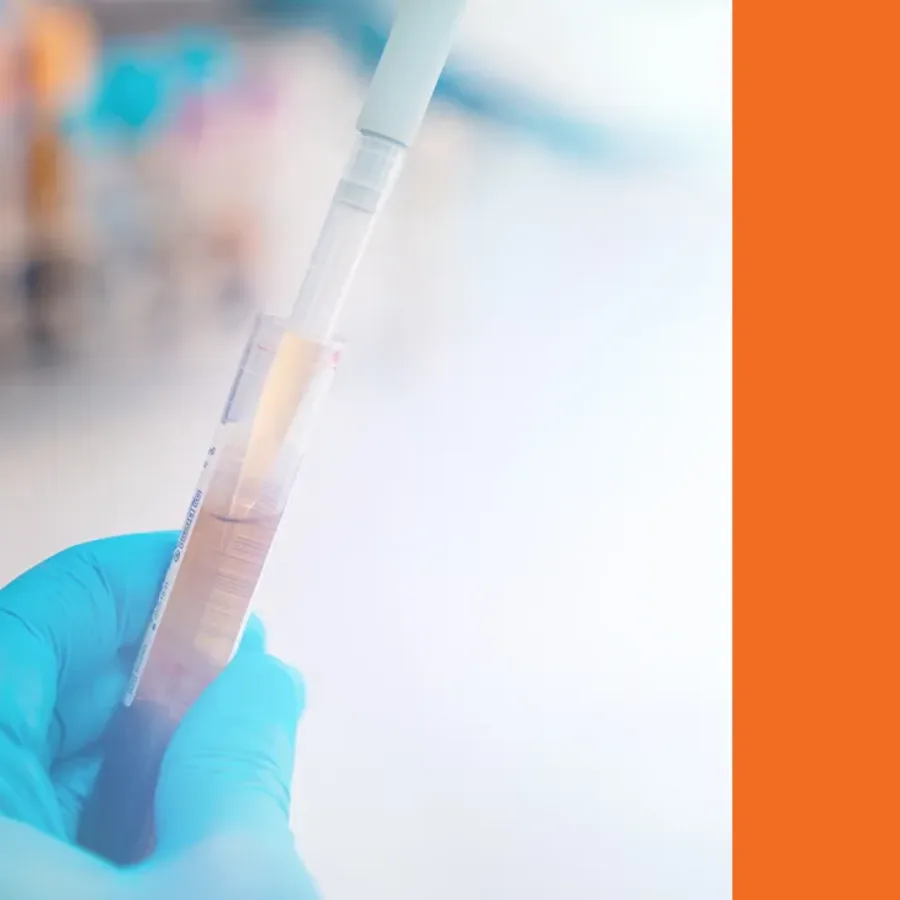
Flow Cytometry Services
KCAS Bio is a global leader in GLP/GCP-compliant and non-GLP flow cytometry outsourcing. We offer spectral and conventional cytometry, cell sorting, validated panel development, and advanced intracellular marker assays to support both nonclinical and clinical studies.

Your bioanalytical partner for flow cytometry services
KCAS Bio is a recognized leader in providing global spectral flow cytometry and conventional flow cytometry and cell sorting services to support non-clinical and clinical studies. With application of custom or off-the-shelf validated methods, flow cytometry offers the potential for powerful biomarker screening paradigms and multi-parameter cellular profiling.
Validated Assays
Established protocols for biomarker discovery and immunogenicity assays that ensure reproducible results across preclinical and clinical studies giving sponsors confidence in data quality while accelerating decision-making.
Fast Turnaround
Streamlined workflows for rapid sample processing and analysis to keep studies on schedule.
Regulatory Expertise
GxP-compliant services fully aligned with FDA and EMA guidelines support smooth navigation through regulatory requirements.
State-of-the-Art Technology
We provide high-dimensional cellular profiling and precise cell sorting utilizing platforms including Cytek Aurora, BD Fortessa, and BD FACSymphony to give sponsors deeper insights, improved biomarker discovery, and robust, actionable data.
What is flow cytometry?
Flow cytometry is a laser-based technique that uses a fluidics-based system and fluorochrome-labelled samples to detect and measure the physical and physiological characteristics of a population of cells or particles. Tens of thousands of live cells or particles can be quickly examined and analyzed for multiple parameters, within a single test sample.
Applications of flow cytometry include PK/PD assessments, cellular phenotyping and functional assays, biomarker detection, proliferation, and toxicology. Whether your goal is to explore cell signaling, immune activation, or cell cycle dynamics, we can tailor a flow cytometry method specific to your research needs.

Advance your program with our global flow cytometry expertise.
Brian Wile, Ph.D. and Adam Cotty, Ph.D. from the flow cytometry site of KCAS Bio – Philadelphia, share some exciting insights about our labs, scientists, projects and use-cases for flow cytometry.
“We are expanding the investigators’ ability to look into the immune system and how that immune system reacts to both disease indications and new drugs during drug development.”
Applications of flow cytometry in drug development
 Therapeutic Areas
Therapeutic Areas
Oncology: Immune profiling (T cell, NK cell, myeloid subsets), monitoring response to checkpoint inhibitors and CAR-T therapies, minimal residual disease detection.
Infectious Diseases: Immune monitoring, vaccine response assessment (B and T cell responses) and pathogen-host interaction studies.
Autoimmune & Inflammatory Diseases: Characterization of dysregulated immune subsets, biomarker discovery for diseases like rheumatoid arthritis, lupus, IBD, MS and monitoring treatment efficacy in immunomodulatory therapies
Metabolic & Cardiovascular: Role of immune cells in atherosclerosis, obesity, diabetes and biomarkers of inflammation and vascular damage.
Neurological: Immune profiling in neuroinflammatory disorders (MS, Alzheimer’s, Parkinson’s), biomarker exploration in neurodegenerative disease progression.
 Phases of Drug Development
Phases of Drug Development
Discovery: Exploratory flow panels to assess target engagement, immune cell characterization, biomarker discovery, functional screening assays and cytotoxicity compound screening.
Preclinical Research: GLP-validated flow cytometry assays to support toxicology, PK/PD, and immunophenotyping studies.
Clinical Sample Analysis: Central lab enabled flow services including validated panels, immunogenicity assessment, and longitudinal biomarker monitoring across global trials.
Capabilities and assays for flow cytometry
KCAS Bio offers high-quality flow cytometry services tailored to deliver precise, reproducible insights. With optimized protocols and expert analysis, we help you characterize complex cell populations and generate reliable data that enables decision making.
Immunophenotyping
Immunophenotyping by flow cytometry is a powerful way to gain deep insights into an individual cell’s unique surface and intracellular phenotype within a heterogeneous population of cells.
KCAS Bio delivers expert immunophenotyping services using advanced flow cytometry to analyze both cell surface and intracellular markers. We have pre-validated panels, custom method development, and fit-for-purpose qualification and validation to support studies across pre-clinical and clinical stages.
Method Development and Qualification
At KCAS Bio, method development begins with a thorough understanding of the assay’s research application, guiding the design of panels, gating strategies, and sample preparation while ensuring compliance with GLP and GCLP standards. Once developed, assays undergo fit-for-purpose qualification or validation, following CLSI H62 guidelines, to confirm robustness, precision, accuracy, and overall reliability for both pre-clinical and clinical studies.
PBMC Isolation and Cryopreservation
This essential technique is used to separate lymphocytes and monocytes from whole blood. High-quality methods are critical for flow cytometry applications, as they ensure long-term storage while preserving cell viability and function for reliable downstream analysis.
Our team understands that high-quality PBMC isolation and storage are critical to maintaining cell viability and function. With highly trained staff, established SOPs and strategic locations across the globe (US, Europe, APAC), we are ready to receive and process your valuable clinical samples with expert precision and care.
Cell Sorting
Fluorescence-activated cell sorting, also called FACS, utilizes the technology of flow cytometry and enables the physical separation of either single or bulk cells from a heterogenous cell population. The resultant cells can be used in any variety of applications and can be utilized in other KCAS Bio methods or shipped to your desired location. We have extensive expertise in optimizing methods and staining panels to ensure successful cell sorting for various or rare target populations.
Magnetic Bead-Based Enrichment
We utilize standard protocols for magnetic bead separation, for non-FACS based cell sorting. This magnetic bead approach allows for positive or negative selection (untouched) enrichment of a variety of cell populations. The resultant cells can be used for a variety of downstream applications, including activation &/or expansion in culture.
Globally Harmonized Sample Processing and Analysis
KCAS Bio has expanded its spectral flow cytometry capabilities with Cytek Aurora 5-laser instruments deployed across multiple sites, including Lyon, France, and Crux Biolabs in Melbourne, Australia.
All instruments are factory-harmonized through Cytek’s program to ensure consistent, reproducible results across locations.
Supported by a global quality system and multi-site training, KCAS Bio maintains aligned procedures and scientific standards worldwide, enabling reliable data for global clinical trials.
Click to read more about our global spectral flow capabilities.
Data Analysis
We offer a customized data analysis workflows and deliverables while ensuring the delivery of comprehensive and meaningful reportable summaries that are FDA, EMA, and regulatory compliant. Talk to us today to learn more about custom packages and the advantages that KCAS Bio can offer for your data analysis needs.
Tailored Functional Assays
At KCAS Bio, we leverage our flow cytometry expertise to develop and optimize functional assays that deliver precise, high-quality, and regulatory-compliant data to support complex immunology programs
Technology and instrumentation for flow cytometry
Our laboratories are equipped with a broad range of flow cytometers optimized for both analytical and cell-sorting applications. This includes high-throughput systems for complex multiparametric analysis, as well as flexible benchtop analyzers ideal for rapid screening. Our conventional and spectral instruments are globally harmonized to ensure consistency across all our processing sites.
Why work with KCAS Bio?
Full-Service Bioanalysis
From method development through final reporting for GLP/GCP-compliant flow cytometry, with expert teams based in the US, Europe and APAC region.
Regulatory Expertise
Comprehensive, compliant data reporting that supports global regulatory submissions.
Cutting-Edge Technology
Best-in-class conventional and spectral flow cytometers, cell sorters and analyzers.
Flexible, Customized Workflows
Custom immunophenotyping, data analysis, PBMC isolation, and enrichment protocols to meet complex research needs.
Broad Sample Type and Matrix Expertise
Plasma, serum, urine, CSF, and tissues plus unstable/rare matrices.
Global Presence with Harmonized Quality
Consistent technical standards and harmonized operations worldwide in the US, Europe and APAC region.
Flow Cytometry FAQs
What kinds of cells or samples can flow cytometry analyze?
Flow cytometry can analyze a wide variety of samples, including whole blood, bone marrow, tissue biopsies, and cultured cells. Essentially, any sample containing single, suspended cells is suitable.
Why is flow cytometry used in research and drug development?
It provides detailed, single-cell information that helps scientists understand cellular behavior, identify biomarkers, screen compounds, and evaluate treatment effects.
How does it measure different cell properties?
Cells are labeled with fluorescent markers, and as they pass through lasers, detectors capture light signals. The intensity and pattern of these signals reveal characteristics like protein expression, viability, and cell cycle stage.
What is the difference between standard and quantitative flow cytometry?
Standard flow cytometry measures relative fluorescence to identify and compare cells, while quantitative flow cytometry provides precise counts of molecules per cell, enabling more accurate and reproducible data.
Quantitative flow cytometry (QFCM) is a specialized technique that enables precise measurement of the absolute number of specific molecules (e.g., receptors, antigens, or intracellular targets) on individual cells or particles. Unlike standard flow cytometry, which provides qualitative data, QFCM utilizes fluorescence calibration standards to convert fluorescence intensity into counts, such as molecules per cell. Read more.
How can flow cytometry help with drug safety or effectiveness testing?
It allows researchers to see how cells respond to drugs at a single-cell level, including detecting toxicity, measuring immune responses, and evaluating the effectiveness of new therapies.
What types of assays can be developed using flow cytometry?
Assays can be developed to evaluate either target-based or phenotypic responses using immortalized cell lines or primary cells. The choice of cell type is based on disease relevance to the test compound under investigation and suitability for assay scalability. Read more.
What role does flow cytometry play in early drug discovery?
Flow cytometry enables high-dimensional, reproducible data for cell phenotyping and functional evaluation, making it a powerful technology to accelerate early drug discovery. Read more.
How does flow cytometry enhance compound screening?
Flow cytometry allows for simultaneous evaluation of multiple cell parameters, providing a comprehensive, multi-dimensional view of individual cells. This capability aids in assessing cellular responses to compounds, facilitating more informed decision-making in drug development. Read more.
How does sample matrix selection impact study logistics and assay design?
The chosen sample matrix dictates several logistical aspects, including sample collection, processing timelines, and storage conditions. It also influences assay design elements such as panel selection, gating strategies, and the need for stabilization agents. Early and informed decisions regarding the sample matrix streamline study workflows and enhance data integrity. Read more.
Why is selecting the appropriate sample matrix crucial for flow assays?
The choice of sample matrix—such as whole blood, bone marrow, or tissue biopsies—significantly influences assay outcomes. It affects cell viability, biomarker expression, and the feasibility of downstream analyses. For instance, plasma or serum samples are generally unsuitable for flow cytometry due to the absence of intact, viable cells. Selecting the right matrix ensures accurate data and reliable study results. Read more.
Additional resources
 Blogs
Blogs
In drug development, the journey from target identification to clinical candidate selection involves a series of critical steps, including compound screening, lead optimization, and pre-clinical testing. Each stage helps narrow the pool of potential therapeutics, with the goal of identifying the most promising candidates for clinical evaluation. Given the time,…
 Blogs
Blogs
Why Sample Matrix Choice Matters Choosing the right sample matrix is one of the most critical decisions when designing a flow cytometry assay. Each option offers unique advantages and limitations that can directly impact data quality, logistics, and study outcomes. Matrix Advantages Use Cases Limitations KCAS Bio Differentiators Whole Blood…
 Blogs
Blogs
At KCAS Bio, we offer expert flow cytometry services designed to support the evolving bioanalytical needs of immunology and biomarker projects for drug development. Whether you’re working in preclinical or clinical settings, our validated off-the-shelf panels save time, reduce risk, and deliver high-quality, reproducible data you can trust. Extensive Portfolio…

Tell us how we can help with your project
We've earned our reputation for delivering reliable, error-free data. We understand the importance of speed, flexibility, and consistency and only make promises we can keep.